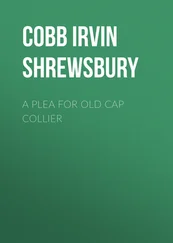Irvin Cobb - Local Color
Здесь есть возможность читать онлайн «Irvin Cobb - Local Color» — ознакомительный отрывок электронной книги совершенно бесплатно, а после прочтения отрывка купить полную версию. В некоторых случаях можно слушать аудио, скачать через торрент в формате fb2 и присутствует краткое содержание. Жанр: foreign_prose, на английском языке. Описание произведения, (предисловие) а так же отзывы посетителей доступны на портале библиотеки ЛибКат.
- Название:Local Color
- Автор:
- Жанр:
- Год:неизвестен
- ISBN:нет данных
- Рейтинг книги:5 / 5. Голосов: 1
-
Избранное:Добавить в избранное
- Отзывы:
-
Ваша оценка:
- 100
- 1
- 2
- 3
- 4
- 5
Local Color: краткое содержание, описание и аннотация
Предлагаем к чтению аннотацию, описание, краткое содержание или предисловие (зависит от того, что написал сам автор книги «Local Color»). Если вы не нашли необходимую информацию о книге — напишите в комментариях, мы постараемся отыскать её.
Local Color — читать онлайн ознакомительный отрывок
Ниже представлен текст книги, разбитый по страницам. Система сохранения места последней прочитанной страницы, позволяет с удобством читать онлайн бесплатно книгу «Local Color», без необходимости каждый раз заново искать на чём Вы остановились. Поставьте закладку, и сможете в любой момент перейти на страницу, на которой закончили чтение.
Интервал:
Закладка:
“Now, then,” he grunted triumphantly, jerking her out alongside him, “I guess you’ll trot along without balkin’. I was goin’ to treat you nice but you wouldn’t behave, would you? Come on now and be good.”
He glanced backward over his shoulder. Three or four men and boys, witnesses to the flight and to the recapture, were tagging along behind them.
“Beat it, you,” he ordered. Then as they hesitated: “Beat it now, or I’ll be runnin’ somebody else in.” They fell back, following at a safer distance.
He had led his prisoner along for almost a block before he was moved to address her again:
“And you thought you could make your getaway from me? Not a chance! Say, what do you want to act that way for, makin’ it harder for both of us? Say, on the level now, ain’t you never been pinched before?”
She thought he meant the pressure of the steel links on her wrist.
“It is not that,” she said, bending the curbed hand upward. “That I do not think of. It is of my sister, my sister Helene, that I think.” Her voice for the first time broke and shivered.
“What about your sister?” There was something of curiosity but more of incredulity in his question.
“She is ill, m’sieur, very ill, and she is alone. There is no one but me now. My brother – he is dead. It is for her that I have done – this – this thing to-night. If I do not return to her – if you do not let me go back – she will die, m’sieur. I tell you she will die.”
If she was acting it was good acting. Half convinced against his will of her sincerity, and half doubtfully, he came to a standstill.
“Where do you live – is it far from here?”
“It is in this street, m’sieur. It is not far.” He could feel her arm quivering in the grip of his nippers.
“Maybe I’m makin’ a sucker of myself,” he said dubiously, defining the diagnosis as much to himself as to her. “But if it ain’t far I might walk you back there and give this here sister of yours the once-over. And then if you ain’t lyin’ we’ll see – ”
“Must I go so?” She lifted her hand up, indicating her meaning.
“You bet your life you’re goin’ that way or not at all. I’m takin’ no more chances with you.”
“But it would kill her – she would die to see me so. She must not know I have done this thing, m’sieur. She must not see this – ” The little chain rattled.
“Come on,” he ordered in a tone of finality. “I thought that sick sister gag was old stuff, but I was goin’ to give you a show to make good – ”
“But I swear – ”
“Save your breath! Save your breath! Tell your spiel to the judge. Maybe he’ll listen. I’m through.”
They were almost at the doors of the squat and ugly building which the Tenderloin calls Jeff Market when he noticed that her left hand was clutched against her breast. He remembered then she had held that hand so when she first spoke to him; except during her flight and the little struggle after he ran her down, she must have been holding it so all this time.
“What’s that you’ve got in your hand?” he demanded suspiciously, and with a practiced flip of the nipper handles swung her round so that she faced him.
“It is my own, m’sieur. It is – ”
“Nix, nix with that. I gotta see. Open up them fingers.”
She opened her hand slowly, reluctantly. The two of them were in the shadow of the elevated structure then, close up alongside a pillar, and he had to peer close to see what the object might be. Having seen he did not offer to touch it, but he considered his prisoner closely, taking her in from her head to her feet, before he led her on across the roadway and the pavement and in at one of the doors of that odoursome clearing house of vice and misery, mercy and justice, where the night court sits seven nights a week.
First, though, he untwisted the disciplinary little steel chain from about her wrist. The doorway by which they entered gave upon the Tenth Street face of the building and admitted them into a maze of smelly dim corridors and cross-halls in the old jail wing directly beneath the hideous and aborted tower, which in a neighbourhood of stark architectural offences makes of Jefferson Market courthouse a shrieking crime against good looks and good taste.
The inspector’s man escorted the French girl the length of a short passage. At a desk which stood just inside the courtroom door he detained her while a uniformed attendant entered her name and her age, which she gave as twenty-one, and her house number, in a big book which before now has been Doomsday Book for many a poor smutted butterfly of the sidewalks. The detective, standing by, took special note of the name and the address and, for his own purposes, wrote them both down on a scrap of card. This formality being finished, the pair crossed the half-filled courtroom, he guiding by a hand on her elbow, she obeying with a numbed and passive docility, to where there is a barred-in space like an oversized training den for wild animals. This cage or coop, whichever you might choose to call it, has a whited cement wall for its back, and rows of close-set rounded iron bars for its front and sides, and wooden benches for its plenishings. The bars run straight up, like slender black shadows caught and frozen into solidity, to the soiled ceiling above; they are braced across with iron horizontals, which makes the pen strong enough to hold a rhino. Its twin stands alongside it, filling the remaining space at the far side of the big room. In the old days one pen was meant for male delinquents and one for female. But now the night court for men holds its sessions in a different part of town and only women delinquents are brought to this place. It may or may not be a reflection upon our happy civilisation – I leave that point for the sociologists to settle – but it is a fact that ninety per cent of them are brought here charged with the same thing.
The first coop held perhaps a dozen women and girls. One of them was quietly weeping. The others, looking, as they sat on one of the benches in their more or less draggled finery, like a row of dishevelled cage birds of gay plumage, maintained attitudes which ranged from the highly indifferent to the excessively defiant. The detective unlatched the door, which was of iron wattles too, and put his prisoner inside.
“You’ll have to stay here awhile,” he bade her. His tone was altered from that which he had employed toward her at any time before. “Just set down there and be comfortable.”
But she did not sit. She drew herself close up into a space where wall and wall, meeting at right angles, made a corner. Her cellmates eyed her. Being inclined to believe from her garb that she probably was a shopgirl caught pilfering, none of them offered to hail her; all of them continued, though, to watch her curiously. As he closed and bolted the door and moved away the plain-clothes man, glancing back, caught a fair look at her face behind the iron uprights. Her big, staring eyes reminded him of something, some creature, he had seen somewhere. Later he remembered. He had seen that same look out of the staring eyes of animals, lying with legs bound on the floor of a slaughterhouse.
Following this, the ordinary procedure for him would have been to call up the East Twenty-second Street station house by telephone and report that, having made an arrest, he had seen fit to bring his prisoner direct to court; then visit the complaint clerk’s office in a little cubby-hole of a room, and there swear to a short affidavit setting forth the accusation in due form; finally, file the affidavit with the magistrate’s clerk and stand by to await the calling of that particular case. Strangely enough, he did none of these things.
Instead, he made his way direct to the magistrate’s desk inside the railing which cut the room across from side to side. The pent, close smell of the place was fit to sicken men unused to it. It commingled those odours which seem always to go with a police court – of unwashed human bodies, of iodoform, of stale fumes of alcohol, of cheap rank perfumery. Petty crime exhales an atmosphere which is peculiarly its own. This man was used to this smell. Smelling it was to him a part of the day’s work – the night’s work rather.
Читать дальшеИнтервал:
Закладка:
Похожие книги на «Local Color»
Представляем Вашему вниманию похожие книги на «Local Color» списком для выбора. Мы отобрали схожую по названию и смыслу литературу в надежде предоставить читателям больше вариантов отыскать новые, интересные, ещё непрочитанные произведения.
Обсуждение, отзывы о книге «Local Color» и просто собственные мнения читателей. Оставьте ваши комментарии, напишите, что Вы думаете о произведении, его смысле или главных героях. Укажите что конкретно понравилось, а что нет, и почему Вы так считаете.












